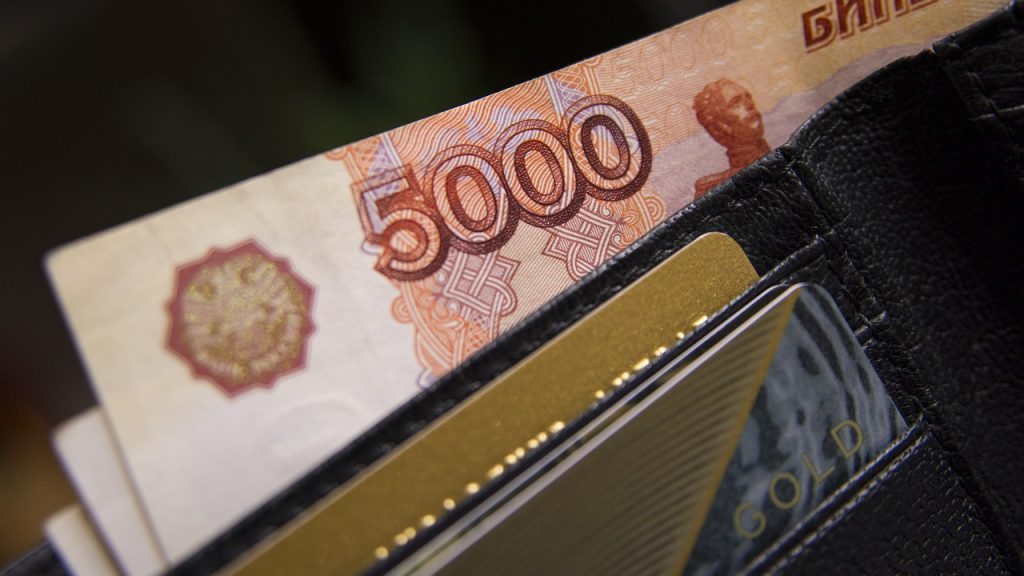Currency devaluation is a complex economic phenomenon that can have far-reaching implications for a country’s economy, its political landscape, and its standing in the global community. This essay will delve into the repercussions of the devaluation of the Russian ruble, considering historical precedent, contemporary circumstances, and the broader international implications.货币贬值是一种复杂的经济现象,可能对一个国家的经济、政治格局及其在国际社会中的地位产生深远影响。本文将深入探讨俄罗斯卢布贬值的影响,考虑历史先例,当代环境,以及更广泛的国际影响。
The history of the Russian ruble includes instances of significant devaluation, and one notable episode is the currency crisis of 1998. During this crisis, the ruble lost over two-thirds of its value within three weeks, accompanied by a default on sovereign debt and a banking crisis [1]. This crisis underscored the vulnerabilities of Russia’s economic structure and highlighted the interconnectedness of economic and political factors.俄罗斯卢布历史上有过大幅贬值,其中一次是1998年的货币危机。在这场危机中,卢布在三周内贬值超过三分之二,同时还伴随着主权债务违约和银行业危机。这场危机凸显了俄罗斯经济结构的脆弱性,凸显了经济和政治因素之间的相互联系。
The devaluation of the ruble holds profound economic implications. A weaker ruble lead to inflationary pressures, driving up the costs of imported goods and potentially eroding the purchasing power of consumers [2]. This, in turn, affects the standard of living for ordinary citizens and contributes to financial strains across Russia’s financial system [2]. Additionally, the sharp devaluation can disrupt supply chains and lead to supply-chain issues [2].卢布贬值还具有深远的经济影响。卢布贬值导致通胀压力,推高进口商品的成本,并可能削弱消费者的购买力。这进而影响到普通公民的生活水平,并导致整个俄罗斯金融体系的财务紧张。此外,卢布的大幅贬值可能会扰乱供应链,导致供应链问题。Inflation is a rise in the general level of prices in an economy over time. When the ruble is devalued, imported goods become more expensive, which can drive up inflation. This is particularly harmful in Russia, where the economy is heavily reliant on imports for many goods. Rising prices can erode the purchasing power of consumers, particularly those on fixed incomes, leading to a decrease in living standards.
通货膨胀是指一个经济体中物价总水平随着时间的推移而上升。当卢布贬值时,进口商品变得更加昂贵,这可能会推高通货膨胀。这对俄罗斯尤其有害,因为该国经济在许多商品上严重依赖进口。物价上涨会削弱消费者的购买力,尤其是那些有固定收入的消费者,从而导致生活水平下降。
However, the impact of devaluation on inflation is not straightforward. Other factors, such as the output gap (the difference between potential and actual output), expectations of future inflation, and the degree of competition in product and labor markets, also influence the inflation rate.然而,货币贬值对通胀的影响并非直截了当。其他因素,如产出缺口(潜在产出与实际产出之间的差额)、对未来通货膨胀的预期以及产品和劳动力市场的竞争程度,也会影响通货膨胀率。
The devaluation of the ruble is closely intertwined with Russia’s political dynamics and foreign policy decisions. The ruble’s decline has direct implications for the Russian government’s fiscal health. Moscow earns significant tax revenue from the oil industry, which is denominated in dollars. As the ruble depreciates against the dollar, the government’s tax revenue in rubles increases, potentially offering a partial buffer against budgetary pressures [3]. However, this strategy has limitations, especially in the face of a severe economic downturn.卢布贬值与俄罗斯的政治动态和外交政策决定密切相关。卢布贬值对俄罗斯政府的财政健康状况有直接影响。莫斯科从以美元计价的石油工业中获得了可观的税收收入。随着卢布对美元贬值,政府以卢布计价的税收收入增加,这可能会部分缓冲预算压力。然而,这种策略也有局限性,尤其是在经济严重衰退的情况下。
The economic challenges resulting from ruble devaluation can also influence Russia’s foreign policy decisions. Economic difficulties may shape the government’s priorities and its stance in international negotiations. For instance, economic pressures could impact defense expenditures and influence diplomatic initiatives, potentially affecting Russia’s engagement with other nations.卢布贬值带来的经济挑战也会影响俄罗斯的外交政策决定。经济困难可能会影响政府的优先事项及其在国际谈判中的立场。例如,经济压力可能影响国防开支,影响外交举措,可能影响俄罗斯与其他国家的接触。
The devaluation of the ruble also carries global implications. As Russia’s currency weakens, concerns about financial stability arise. The devaluation can disrupt international trade, as the cost of imports rises and the competitiveness of Russian goods in international markets changes [4]. Moreover, the global financial system can be impacted by the challenges faced by a major economy like Russia.卢布贬值还会带来全球性影响。随着俄罗斯货币贬值,人们开始担心金融稳定。由于进口成本上升,俄罗斯商品在国际市场上的竞争力发生变化,货币贬值扰乱国际贸易。此外,像俄罗斯这样的主要经济体所面临的挑战会影响全球金融体系。
Additionally, the devaluation of the ruble intersects with issues of financial sovereignty. Russia’s ability to manage its currency’s value is closely tied to its economic policies and international relationships. The use of sanctions and restrictions by other countries can limit Russia’s economic maneuverability and raise questions about its autonomy in shaping its economic destiny [5].此外,卢布贬值与金融主权具有问题交叉。俄罗斯管理本国货币价值的能力与其经济政策和国际关系密切相关。其他国家使用制裁和限制可能会限制俄罗斯的经济可操作性,并对其在掌控经济命运方面的自主权提出质疑。
The devaluation of the Russian ruble highlights the intricate interplay between economics, politics, and global dynamics. From historical lessons to contemporary challenges, the impact of ruble devaluation is multi-dimensional. It affects everyday citizens through changes in purchasing power and standard of living, shapes government policies, and raises questions about financial stability and sovereignty on a global scale. As Russia navigates the complexities of ruble devaluation, it underscores the interconnectedness of today’s world and the importance of comprehensive and strategic approaches to managing currency fluctuations.俄罗斯卢布的贬值凸显了经济、政治和全球动态之间错综复杂的相互作用。从历史教训到当代挑战,卢布贬值的影响是多方面的。它通过购买力和生活水平的变化影响着日常公民,影响着政府政策,并在全球范围内引发有关金融稳定和主权的问题。俄罗斯在应对卢布贬值的复杂局面时,强调了当今世界的相互联系以及管理货币波动的全面战略办法的重要性。
参考文献:
[1]https://www.economicsobservatory.com/russias-1998-currency-crisis-what-lessons-for-today
[2]https://www.cbsnews.com/news/russia-ukraine-ruble-sanctions/
[3]https://www.gmfus.org/news/russias-ruble-dips-new-lows-moscow-managing
[4]https://www.sciencedirect.com/science/article/abs/pii/S1544612322002410
[5]https://www.allianz-trade.com/en_global/news-insights/economic-insights/russia-rallying-ruble.html

